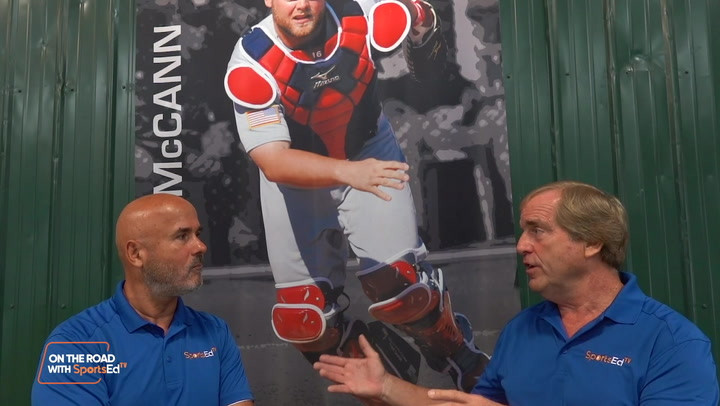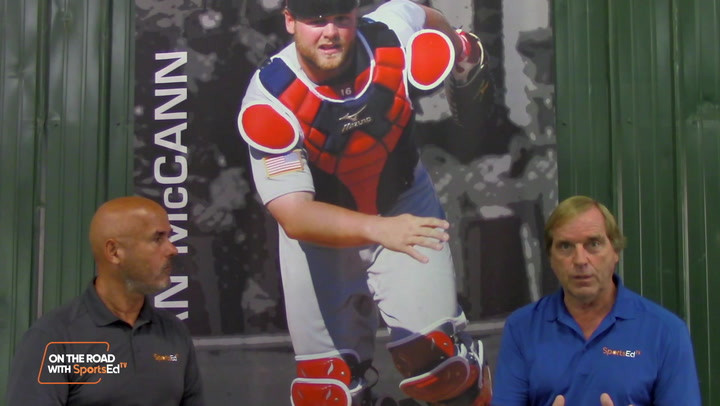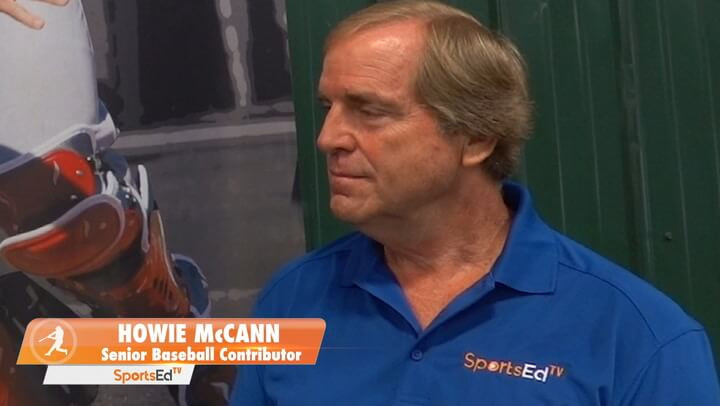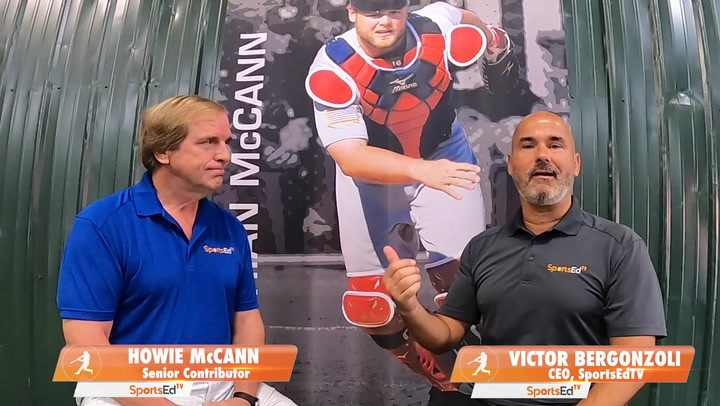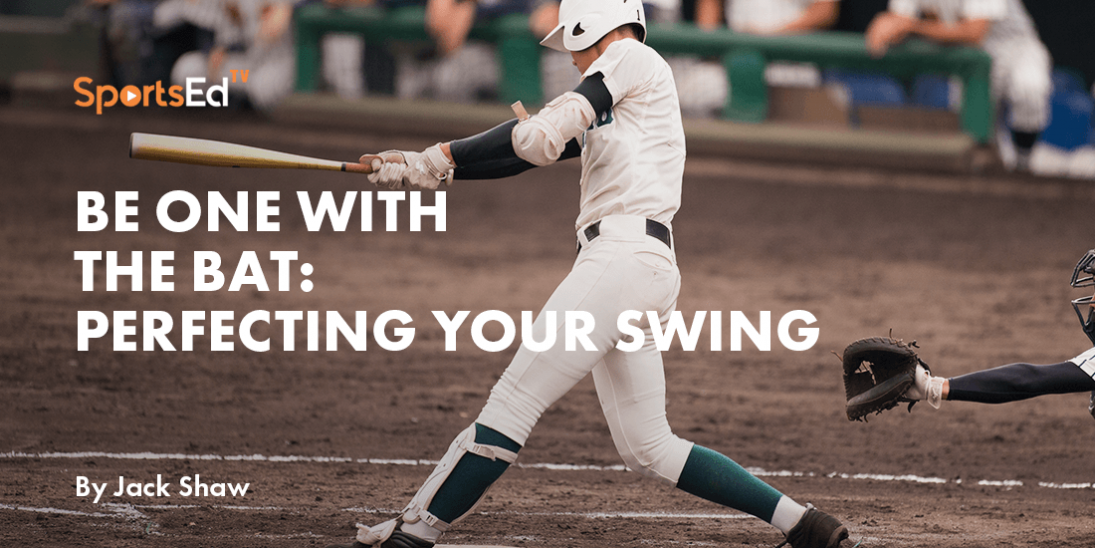Baseball
Welcome and thanks for visiting...

SportsEdTV Talks With Howie McCann (Age 15 to 18)
Victor Bergonzoli: Hello, we are back. Previously, we covered every age from 3 to 14. Today it's 15 to 18 the age of four years of high school baseball. We are going to learn everything we need to know as parents, as coaches. What do you do? So tell us about high school baseball.
Howie McCann: Number one, at high school baseball, congratulations your son or daughter made the team!
If you look at the percentages of kids who play high school sports, it's very low. OK, so that's number one. So congratulate yourself on getting your son or daughter to the team.
Now we've got to perform. When you get to high school you have to play and perform. If you don't perform, somebody is going to take your job. Coaches aren't worried about, who you know or who you are or what you do. He's worried about winning and losing.
Now, as a freshman, you are trying to develop. You want to get to the varsity level as soon as possible. If you can play, as a freshman. Great. Usually, the transition here, you play freshman baseball as a freshman, JV baseball as a sophomore, and then varsity in your junior-senior years. If you can play varsity as a freshman and sophomore, you're a pretty good player. But we got to get there. We got to get going and you got to perform.
VB: Did your kids play as a freshman?
HM: Yeah, both my kids played freshman baseball or varsity baseball as freshmen. They went to Duluth high school and they were good players.
VB: Nice. So let's speak about the freshman year. What do you do differently? Do train every day?
HM: Yes. This will be different for your son or daughter. A good coach will practice every day except Sunday usually. And they'll play two or three times a week. It's a condensed season usually around here, when the kids go on spring break, the first week of April when they get back the season is usually done. So, from January to 1st of April, it's every day, every day, every day,
VB: And then on Sundays, they just relax?
HW: No, they come here. They come to Windward Baseball.
Now, Sunday if they had a long week, take the day off. But if you had a tough week and you know your swing isn't what you wanted or you didn't throw strikes or whatever, then you could come in and kind of work with somebody other than your coach, you know, a different set of eyes, a different voice to the kind of get you where you want to be.
VB: It's really almost being a professional and it's almost a job. The good kids do it for years, yeah?
HM: Well, you know your son or daughter better than we do. But if your son or daughter has aspirations of playing college baseball or lacrosse or whatever you play, if you have aspirations, I'd like to play at the University of Georgia baseball. Well, you better get after it. And now you've got an opportunity and a coach to really get after it and really hone your skills and get better.
VB: So 15, make the team, fifteen kids, Brian had fourteen teammates, the first year as a freshman, how many of the people were on the team at the end? How many stay?
HM: This is crazy. Now, this is Duluth High School, but I think it's, it's close to what most high schools are. My oldest son Brad came into Duluth. There are fifteen kids on the freshman team. Five made it through. So the senior night I'm there with four other parents. Brian comes to start with fifteen. His senior night there were four of us. That's it.
So what happens with kids? They make the team and they realize they've got to lift weights in the morning. They got to run. They got to miss activities on the weekend. It's a grind. It's no longer show up and play. It's preparing to play and a lot of kids, as a sophomore, they go, I don't want to do this. You know, I want to go to Lake Lanier and hang out with my buddy, which is fine.
And then you got academics, you know, you got all kinds of vices that, you know, kids get into, you know, and we lose in the academics and other things. Kids get jobs. They want cars. They want a social life. Girlfriends. So after about four years, you lose a bunch.

VB: It takes discipline. I mean, can we still encourage, you know, what we spoke about like do some training in the morning like go swimming? Do you do it? Do the best guys do it?
HM: Oh there's a school over here. I won't mention it but there's a school over here and there's a coach. He had his guys swim Monday, Wednesday, Friday, 6:00 a.m. So your son has to be in the pool by 6:00 a.m. So I told his mother, I said make sure that kid is there because he's an on the bubble guy. When I say the bubble is. Thus there'll be 30 kids try out at your high school for this team. They take 15 and you can't afford to be number 16. If you're 16, you get cut.
So this kid is a nice player, but not a great player. But he goes swimming Monday, Wednesday, and Friday every week. And I told his mom, I don't care if you have to send him with Uber, you need to get him there because the reason a coach does is he's trying to weed out the kids that don't love this stuff. I like baseball, but I don't love it or baseball is OK. But I don't love it they're trying to weed those kids out in the swimming pool. So do it and get out of bed to go swim. And of course, this kid goes every time and he makes a team as a freshman, and his Mom and I were excited.
VB: When I'm a freshman and I work out and I play with kids who are four years, three years older, is there's a big difference?
HM: Oh, huge difference physically and mentally in all the previous episodes, as we were talking about playing, competing, getting better. So the kids that have that background, their pedigree, you know, they've been playing a lot of baseball since they're nine all the way through, I think they're more prepared for the high school rigors than a kid that didn’t.
So you get into high school again, you're practicing every day and you're playing two, three times a week, weather permitting, and I think the kids, you've done all your due diligence. Now it's time to really perform.
VB: That's amazing. Let's speak about becoming a specialist. Say as a pitcher only, you call this PO. When do I decide that my son should be a PO or is it the coach who decides this kid is only a PO?
HM: This is what happens when you get to high school.
If I was a high school coach, my job is to win. For the first time, we talked about in previous episodes. If you're playing, everything's good. If you're winning, great. If you don't, that's OK. You get to high school and your team doesn't win. The coach gets fired. Simple.
So as a coach, I'm going to do everything in my power to make sure that we're the best team we can be. So when the kids come in. If you see a kid, he's not a great hitter, not a great fielder, but he's got a great arm. So you make him a pitcher. So the term PO, pitcher only. So he pitches, but he's not good enough to play a position or hit.
Then you get Brian as a catcher. That's when he really started catching every game. Now, my older son was a shortstop, so Brad is playing short, Bryan is catching. But everybody has a position and it almost gets like professional baseball where Dansby Swanson is the Braves shortstop. He plays every night and they'll give a night off every ten or twelve days. That's it. So you really become a specialist at that position. And, you know, you may want to play shortstop, but you're better than I am. So you play short. They move me to second. Yeah. And that's high school baseball.
VB: Now, the danger is, he's a good pitcher, the coach says I'm going to make him a PO and then he's not good enough to go play in college So what happens next?
HM: Great question. When guys work with me that I know become POs, I still try to get him in here to keep hitting. So may not hit for the high school, but then the summer baseball, you go back, play in left field,
VB: Whatever you do, keep hitting, right?
HM: Oh, If you're a hitter if I come in to watch you play when I was a college coach. But when I come in to watch your son play, if he hits, he's got a chance. If he throws hard, he's got a chance. If he can run, he has a chance. He can play defense. He has a chance. So you have to take these skills and hone them into a college guy, he sees you play and says, I want that kid to play for me.
VB: Nice. That's amazing. How many kids go from high school to college? Next time we’ll talk more about college?
HM: Oh, boy. I mean, the percentage really drops in this segment.
I'm so happy that your son or daughter made the high school team. You know, I always thought this is one of my jokes, but if your son or daughter can walk out of a high school with a leather jacket and they went to the prom, then life has been good.
Now, if they take it to college, you're ecstatic. But if you leave high school, you played four years of baseball or lacrosse, in your case, four years of baseball. Man, what a great four years.
Now, on the flip side of that, if he doesn't make the team, he gets out of school at two-thirty with nothing to do as a parent. As you know, we don't want to get there. So if you can leave high school with a leather jacket, life is good.
VB: Then, on a team of fifteen. How many will make it?
HM: The percentages of kids playing in high school are here, but when you get to college, it really drops. And then from college to professional, it really drops. And then to play in the big leagues, well…
VB: So how much is work? I mean how much is real work and how much is talent? I mean, if this kid was really trying hard, of course, you know, if he's short and he cannot hit and doesn't have good eye-hand coordination that will never change. But, how about talent?
HM: As a high school coach I love is where you're heading with this. You'll have hopefully two or three superstars on your team. Those two or three will do what, go to college?
But then you need the six or seven other kids that are good high school baseball players that won't play the next level. But they're really good players and they're not for whatever reason talented enough. They're not big enough for whatever. They don't throw hard enough, but they're good high school baseball players in the majority of the country, those guys.
And when you start separating real good ones they come here. And we talked in another episode about the big leaguers, they are big strong men. I mean, Brian, 6’3”, 230 lbs. You know, Brad was 6’2”, 215 lbs. I mean, they're big men. So in high school, you got your two or three superstars, which will win your state championship, but then you got to have your six or seven other kids that help those guys.
VB: I was wondering, is it genetics, two sons in the big leagues? Or is it, Howie McCann being one of the best coaches in the nation and making these kids who they are?
HM: I wish I could say that but I can't. I had two kids who love baseball, not one. And it's really funny because I tell young parents they're there night and day. I mean, Bradley was one of the fastest kids east of the Mississippi, running speed.
And Brian is a catcher. And I said earlier, I made Bryant a catcher. You know, when I saw him play soccer, he was a step slower than the other kids, so they put him as a goalie.
So two kids, you know, the same family. However, you know, one runs like this, and one runs like this. And that's the beauty of baseball that any body type can play it. Now, Brad, when he gets into college and pro baseball, you know, he wasn't able to play shortstop, OK? So they moved him to third. And then when he got into pro ball, they moved him to first. So, you know, getting specific is how you move up to the next level. They look at your talent and your abilities and then you have to play defense. So they put you in a position where your talents can play that position. Not everybody can play shortstop.
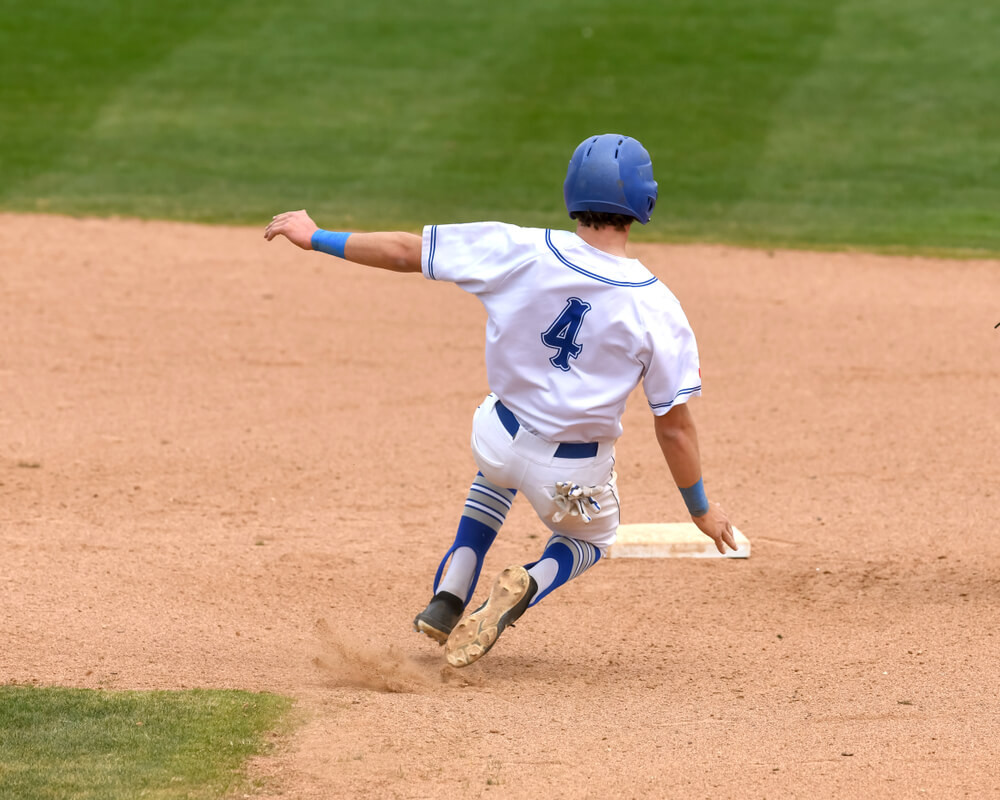
VB: So genetics or work?
I think both. I think they were both good athletes. They loved the game and they really worked their tails off. Now to say you're going to be able to hit ninety-five miles an hour and that's a special kid. That's special. I mean, that's because everybody would like to do it. I would like to do it. I'd be playing instead of working at Windward. But everybody would like to hit ninety-five but very few guys can. And when you see a Major League Baseball player or a professional baseball player, they were really, really good players.
VB: What would you say, 50 percent, 50 percent?
HM: I think you have to. Well, I think it starts with being athletic. So I think the genetics start and then hopefully get a parent or coach, you know, someone taking the next step.
VB: In any case, even if you are genetically made to play baseball or soccer or whatever. Work, there's this ten thousand hours rule that they speak about. Is it essential you don't rely only on this kid is talented
HM: Well, the thing with that is you keep moving up the ladder. You have to get better and kids who have that drive will get better, kids who don't, won’t.
And you see it in the Major League Baseball especially, you know, someone told me a number one draft pick and they pay him five million dollars.
This kid is going to be the next Tom Seaver. Well, he gets into the minor leagues and he doesn't perform and he kicks around two or three years and now he goes and then you say, hey, whatever happened to so-and-so?
And kids who keep working and stay focused on what they're doing will keep elevating.
VB: What I like is you keep speaking about focus and I mean, it is mental. When you're drafted and you're talented, you can throw, you can hit, it's mental, It is: go in the morning and swim, don't drink. These are all the elements that are going to make it possible for you. We're in high school here. We'll speak about college next time.
But, you know, a lot of parents have invested so much, you know, college in the US is expensive. I mean, one of your kids went to Clemson. How much did you spend?
HM: Ok, a great story for me, Brian signed out of high school with the Braves second-round pick, a fourth player got the money that he got. So he goes to play professional baseball.
Bradley took a different route. He was drafted, opted not to sign and go to college. Well, at Clemson, the most I ever spent, which really scares me now is twenty-five hundred dollars.
Like if you asked me for twenty-five hundred bucks, you know, pay me back. Yeah, but I can give you twenty-five hundred bucks if you ask me for twenty-five thousand or thirty thousand or forty thousand. And by the time your son goes to college, it may be fifty thousand.
So this is a way I think parents look at this is to help them. You know, they spend some money upfront to help them go to college.
And if a kid wants to do that, so some of you guys have sent your son or daughter to private school and you've spent fifteen to twenty-five thousand a year to get your kid a high school education, so anything that your son or daughter can help for the scholarship would certainly be appreciated.
VB: Yeah, because we have scholarships in high school around here. We have a lot of high schools, private high schools where I know people don't pay the tuition. The team wants them.
HM: Right. There are two or three private schools right up here in Alpharetta that if you're a hotshot eighth-grader, you know, they'll give you a scholarship to come to play in, not just baseball, but lacrosse and basketball and et cetera, et cetera.
VB: And that's very American. In Europe, you know, it's different, like in Asia. It's different. But, in this day and age, every penny counts. If your son understands, you don't need to work. Play baseball as your work. Do your job. And that's going to help me with the tuition.
HM: And the other thing is, I tie everything into academics. I mean, people who know me, I'm a baseball guy, but I always talk about academics because you can parley academics with baseball.
They'll give you money because you're smart and they'll give you money because you're a good athlete and you throw that package together and then it comes off. In Georgia, we have the Hope Scholarship. I was just telling kids, I hope you get the hope. But the hope in Georgia is tuition and books. So imagine your son or daughter if you lived in the state of Georgia getting a Hope scholarship plus a baseball scholarship. Then then you're down to not a lot of money.
VB: And that's important. And it can happen already at the high school level. And what we have seen in some studies is that people who do sports at this level are more successful in life.
HM: No question. You know, again, I've said this for years. People like to hire athletes. Why? They know discipline. They know teamwork, OK? They know what it's like to get up in the morning and go to work.
OK, so people like to hire those guys. You've got to get a degree. Got to graduate from college to get that job. But once you graduate, once you go into an interview situation, you got to be able to sit down and say, look, I've done this, this and this and let people really like to hire athletes.
VB: And even if it's high school, I mean, I know that when I hire people, they did not play in college because it's hard, that's fine. But, you know, what do you do in high school?
HM: In the business world, people like you Victor, are well-rounded people, and are sports and academics? You know you do everything.
I always used to tell my kids, even in high school, you know, get into some clubs, you know, if you want to be in some club, as long as it doesn't take away from your athletics. But, get to know everybody, get to know kids because eventually your baseball or your athletic career is over. Like Brian retired last year, everybody hits that ceiling, you keep moving, and eventually, you level off.
VB: Well, this has been great.
HM: This was my favorite one of our four episodes, I kept saying, we've got to get your son to high school. Well, now we've done it now. Have a great four years.
And then hopefully next week we talked about your son going to college. Thank you, coach. You're the best. Thanks, Victor.
